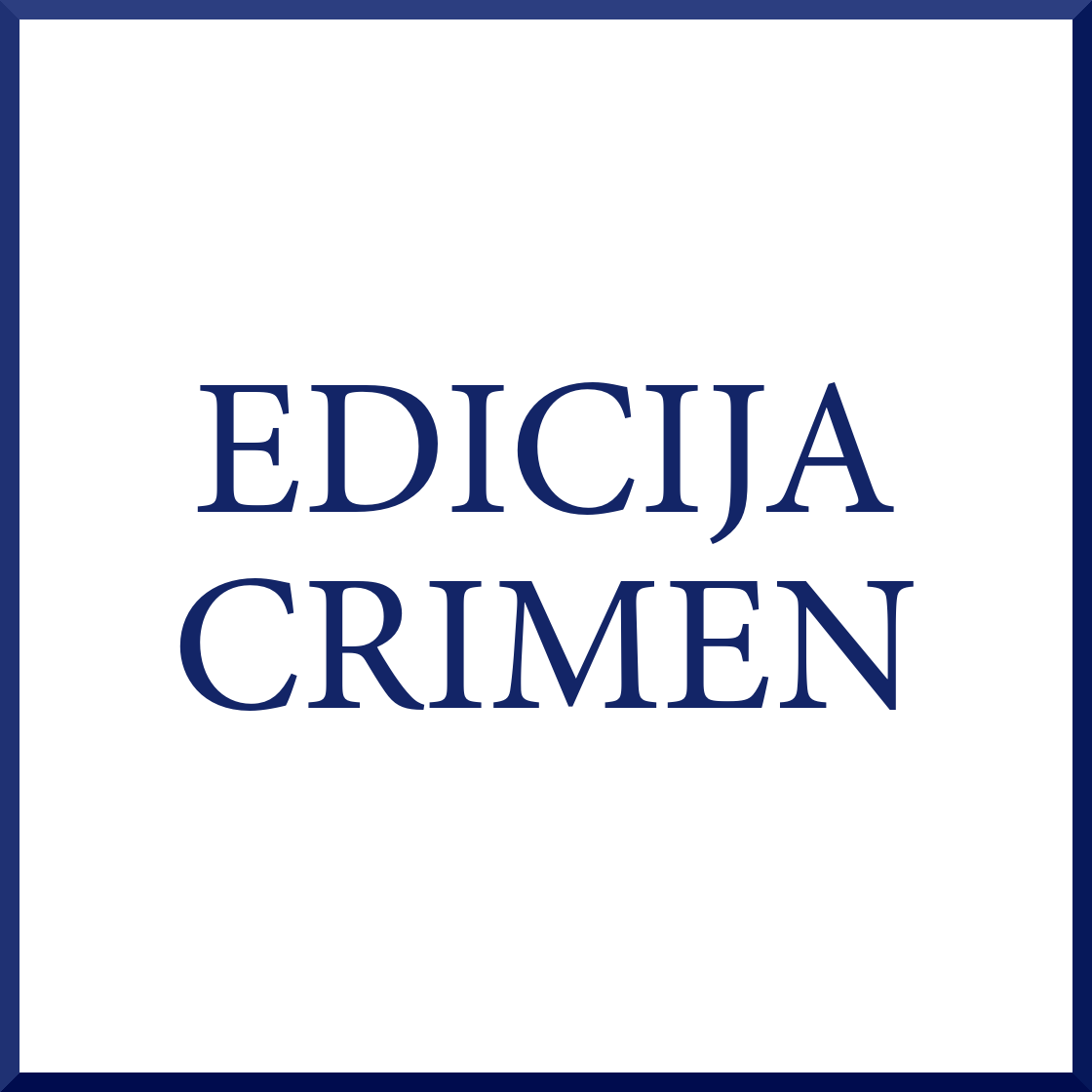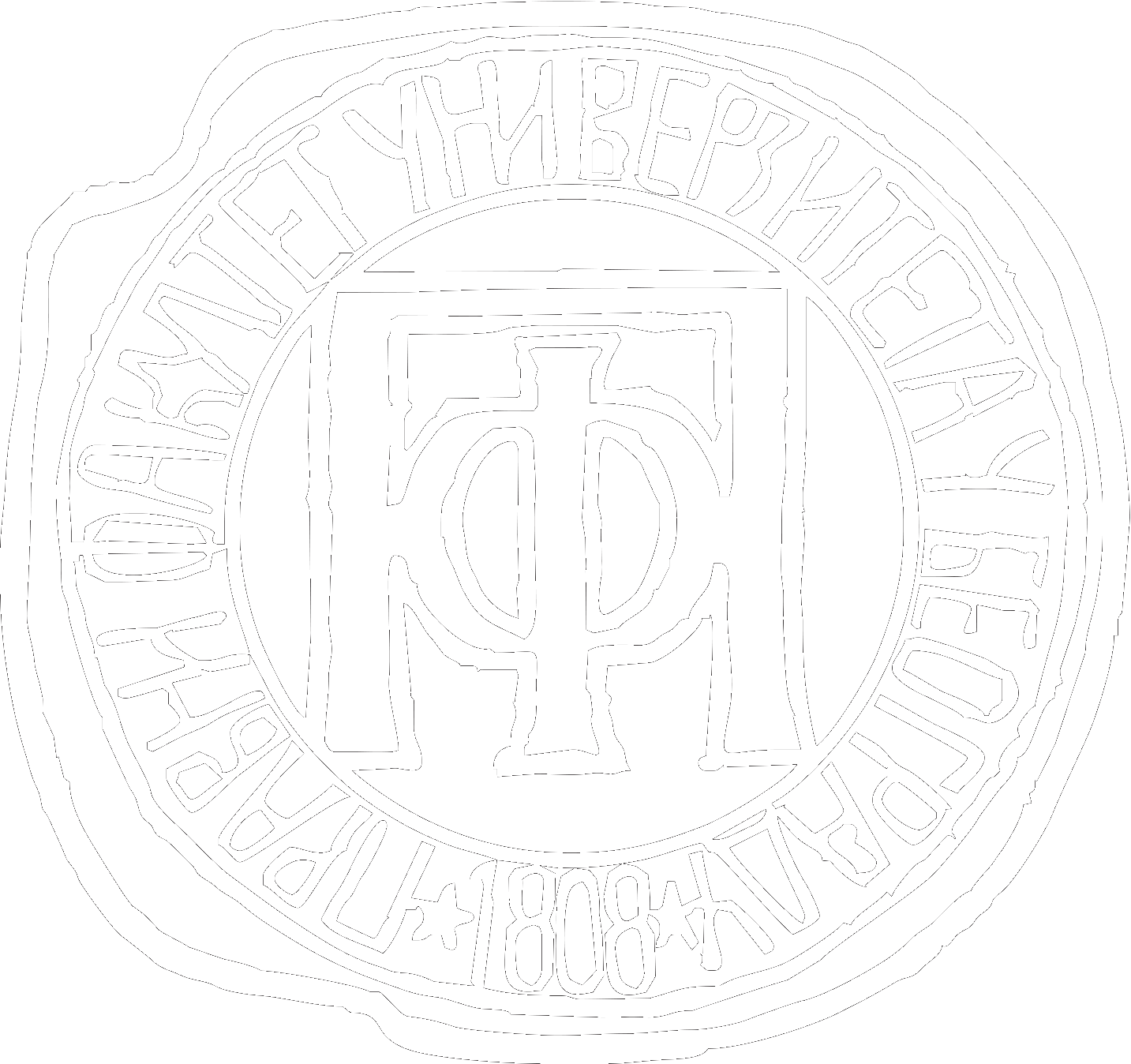Genocidal intent
Keywords:
genocide; intent; media; propaganda; politicization; historical continuityAbstract
Due to the tragic events on the territory of the former SFRY, the subject of genocide has become very current topic in wider social and scientific circles. This offense and the Convention on the Prevention and Punishment of the Crime of Genocide (1948), has become rather discussed subject on the territory of former Yugoslavia, but also outside of it. In that sense, the subject of genocidal intent has particularly intrigued Jovan Ćirić, because that element is what substantially defines genocide as such. The common standpoint of classical criminal justice law is that without the intent of destruction of national, ethnical, racial or religious group there is in fact no genocide. However, the problem arises when we try to define the intent itself. In English, for instance, there is no concept, a word that would define the intent. In Serbian literature and language, there is just a slight difference - the intent is mostly defined as special, particularly strong form of intent. Until recently, that was rather common concept in the world literature for the understanding of genocide. However, the trials before the International Criminal Tribunal in Hague concerning former Yugoslavia and Rwanda showed that it is very difficult, almost impossible to prove someone's guilt, i.e. genocidal intent. Prosecutors Carla Del Ponte and Geoffrey Nice complained during the trial of Slobodan Milošević that they won't be able to prove genocidal intent. It could be said that is the main reason western European criminal thought developed the theory that the existence of genocide requires no intent, as a special form of 'strong' intent, but that the existence of indirect intent is sufficient. The author claims such statements are absurd for they make the intent and genocide into something incidental, much like collateral damage. Related to that is the subject of media prejudice and breach of the presumption of innocence. Namely, media had at one point blown out of proportions the story of guilt and intent of several accused individuals and in such state there was no need to prove the guilt and intent, for the media verdict had already been given. Serbs were persistently, constantly and tendentiously shown in the worst possible light and in such situation it was difficult, almost impossible to be objective and impartial in the trials for the war crimes. Special attention needs to be drawn to the propaganda of genocide which is prohibited by the Convention as a sort of incentive to genocide. However, that is connected with numerous problems concerning the so-called hate speech, but also with freedom of speech - the complicated question where the freedom of speech stops and the hate speech and incitement to genocide emerge. One question that is particularly interesting is the unbelievable, hysterical anti-Serbian propaganda during the nineties which no one took the blame for, which raises many questions and foremost speaks about the politicization of the phenomenon of genocide. Jovan Ćirić also believes that a genocidal intent has to be considered having in mind particular historical context. It is one thing if intent, psychological attitude of perpetrator towards the act, develops in a particular moment, i.e. short span of time (almost in the heat of passion), and completely different thing is if it develops and repeats itself in continuity. The author predominantly has in mind the continuity of Serbo-Croatian relations and points that what Ante Starčević had in mind continues in what Ante Pavelić did and what Franjo Tuđman in his 'transcripts from Brijuni' said. Present, particularly when we talk about genocide and genocidal intent, cannot be fully understood and perceived without considering the historical context.
Downloads
References
Ambos, K. 2015. "What does Intent to Destroy in Genocide Mean?" Accessed at: http://www.genocidewatch.org/images/Articles_What_does_intent_to_destroy_in_genocide_mean.pdf.
Antonić, S. 2015. Još nije gotovo Milošević. Belgrade.
Avramov, S. 2008. Genocid u Jugoslaviji 1941–1945, 1991... Books I and II. Belgrade.
Čavoški, K. 2006. Okupacija. Novi Sad.
Čejović, B., and M. Kulić. 2011. Krivično pravo – opšti deo. Belgrade.
Ćirić, J. 1999. NATO agresija na Jugoslaviju – sedam pitanja i sedam odgovora na moralno-psihološke, socio-ekonomske i pravno-političke dileme. Belgrade.
Ćirić, J. 2004. Komandna odgovornost za genocid i ratne zločine. Pravni život, no. 9.
Ćirić, J. 2007. Pravosuđe i mediji. In Kriminalitet u tranziciji: fenomenologija, prevencija i državna reakcija, edited by Institut za kriminološka i sociološka istraživanja. Belgrade.
Ćirić, J. 2011. Prvi udarac. In 20 godina od razbijanja SFRJ, edited by Branislava Knežić and Jovan Ćirić, Institut za uporedno pravo. Belgrade.
Ćirić, J. 2013. Da li će posle “Haga“ doći do pomirenja na prostorima bivše SFRJ? In Haški tribunal između prava i politike, edited by Jovan Ćirić, Institut za uporedno pravo. Belgrade.
Delić, N. 2008. Pobude učinioca kao kvalifikatorne okolnosti kod krivičnog dela teškog ubistva. Pravni život, no. 9.
Dimitrijević, B. 1999. Od medijskog stereotipa do vojne intervencije. Vojno delo, no. 2.
Đurđić, V., and D. Jovašević. 2003. Međunarodno krivično pravo. Belgrade.
Flohr, A. K. 1991. Feinbilder in der internationaliten Politik. Lit Verlag Munster, pp. 99–107. (Cited in Lj. Glišović. 2011. Srbija u ogledalu nemačke štampe 1987–2006. Belgrade).
Gil Gil, A. 1999. Derecho Penal Internacional: Especial consideracion del Delito de genocidio. Tecnos, Madrid. (Cited in Ambos, K. What does Intent to Destroy in Genocide Mean?).
Greenwalt, A. K. A. Rethinking Genocidal Intent: The Case for a Knowledge-Based Interpretation. Accessed at: http://digitalcommons.pace.edu/cgi/viewcontent.cgi?article=1337&context=lawfaculty.
Jazić, A. 2013. Spoljnopolitička propaganda: akteri i sredstva. Belgrade.
Jazić, A. 2014. Propaganda u Velikoj Britaniji prema domaćem stanovništvu na početku i tokom Prvog svetskog rata. In Sto godina od početka Prvog svetskog rata – istorijske i pravne studije, edited by Jovan Ćirić and Miroslav Đorđević. Belgrade.
Karović, S. Mens Rea: Genocidna namjera. Accessed at: http://civitas.fpps.edu.rs/02/Civitas_No_2.pdf.
Kazimirović, V. 1987. NDH u svetlu nemačkih dokumenata i dnevnika Gleza fon Horstenau 1941–1944. Belgrade.
Krestić, V. 2009. Dosije o genezi genocida nad Srbima u NDH. Novi Sad.
Magnusson, K. 2013. Pojam genocida u pravu i nauci: jaz koji se širi. Crimen, no. 1.
Marjanović, Đ. 1989. Verbalni politički delikt neprijateljske propagande. In Misao, reč, kazna. Belgrade.
Marković, I. 1997. Ubistvo na mah. Pravni život, no. 9.
Mitrović, M. 1994. Raspad države i rat u Jugoslaviji. Sociološki pregled, no. 2.
Mrvić-Petrović, N. 2014. Krivično pravo – opšti deo. Belgrade.
Nikolić-Ristanović, V., and N. Mrvić. 1992. Društvena kontrola i kriminalitet žena. Belgrade.
Petronijević, G. 2013. Neprincipijelnosti u primeni pravnih standarda MKSJ. In Haški tribunal između prava i politike, edited by Jovan Ćirić, Institut za uporedno pravo. Belgrade.
Petrović Piroćanac, Z. 2002. Izbrisati srpski virus (Mala antologija rasizma, šovinizma i govora mržnje na kraju drugog i početkom trećeg milenijuma). Čigoja, Belgrade.
Radbruch, G. 1980. Filozofija prava. (Translation from German). Belgrade.
Srzentić, N., A. Stajić, and Lj. Lazarević. 1984. Krivično pravo – opšti deo. Belgrade.
Stanković, I., and I. Aćimović. Genocid. Accessed at: http://www.helsinki.org.rs/serbian/projekti.html.
Stojanović, Z. 2012. Komentar KZ Srbije. Belgrade.
Stojanović, Z. 2014. Krivično pravo – opšti deo. Belgrade.
Tanasić, N. Tragedija „Šarli ebdo“ – tanka linija između slobode govora i šovinizma. Accessed at: http://www.nspm.rs/savremeni-svet/tragedija-sarli-ebdo--tanka-linija-izmedju-slobode-govora-i-sovinizma.html.
Triffterer, O. Genocide, Its Particular Intent to Destroy in Whole or in Part, the Group as Such. Accessed at: http://law.huji.ac.il/upload/ambos_reading4.pdf.
Umeljić, V. 2012. Promena paradigme u nemačkoj istorijskoj nauci. U Hrvatskoj državi 1941–1945 nije izvršen genocid nad Srbima? Zbornik Matice srpske za društvene nauke, Novi Sad, no. 141, 4/2012.
Vukasović, P. 2012. Od Troje do Termopila – kako su stranci postali varvari. Belgrade.
Vuković, S. 2009. Etika zapadnih medija – Anti-srpska propaganda devedesetih godina XX veka. Novi Sad – Sremski Karlovci.
Zolo, D. 2012. Ljudska prava, demokratija i mir u eri globalizacije. Strani pravni život, no. 3.

Downloads
Published
How to Cite
Issue
Section
License
Copyright (c) 2015 Jovan Ćirić

This work is licensed under a Creative Commons Attribution 4.0 International License.
The authors retain copyright and grant the journal the right of first publication, allowing others to share the work with proper attribution to the authors and acknowledgment of its original publication in this journal.










